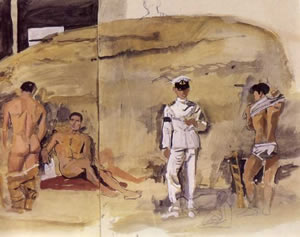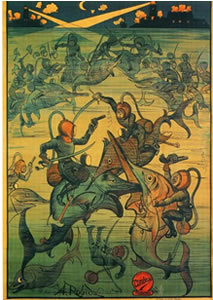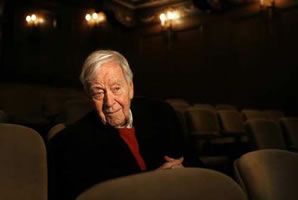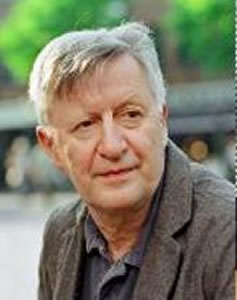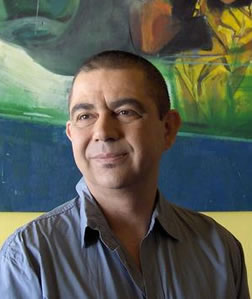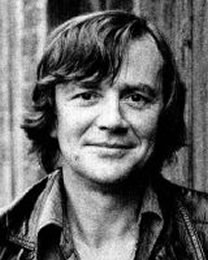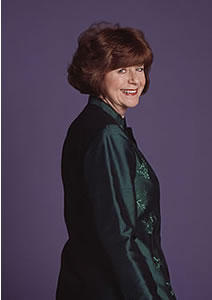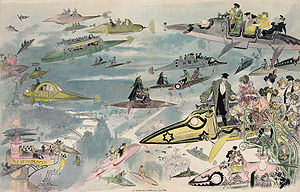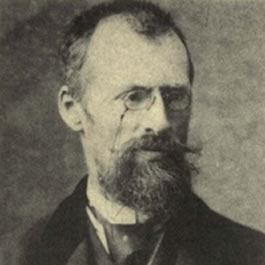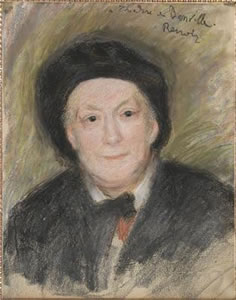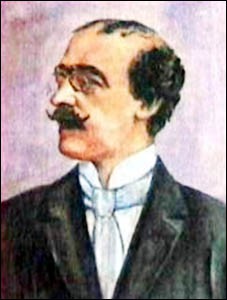De Amerikaanse schrijver en draaiboekauteur Horton Foote werd geboren op 14 maart 1916 in Wharton, Texas. Foote startte zijn loopbaan als acteur. Hij bleek echter spoedig een betere schrijver dan acteur te zijn en schreef in 1941 zijn eerste stuk Texas Town voor een Off-Broadway-productie. Zijn stukken, waaronder ook eenakters en experimentele werken, vonden nadien ook hun weg naar Broadway zelf. Foote werkte met veel artiesten samen, met name met danseres en choreografe Martha Graham. Zijn stukken spelen zich dikwijls af rond het Texaanse stadje Wharton, dat hij Harrison noemde, en gaan meestal om complexe drama’s waarin schijnbaar niets gebeurt, over de oude dag op het platteland. In 1963 ontving hij een Oscar voor het Beste Aangepast Scenario voor To Kill a Mockingbird, naar de gelijknamige roman van Harper Lee, in 1964 een Oscar voor het Beste Originele Scenario voor Tender Mercies en in 1995 de Pulitzerprijs voor zijn toneelstuk The Young Man From Atlanta. Horton Foote overleed op 4 maart van dit jaar, tien dagen voor zijn 93 verjaardag.
Uit: The Old Beginning
„(Tommy goes back to his paper. H.T. Maven comes bustling in R. He walks across sidewalk, up C. sidewalk, and enters his office. He is heavyset and in his middle fifties. He chews a cigar nervously)
MAVIS. (sharply) Tommy.
(Tommy puts his paper down. He seems embarrassed and ill at ease at his father finding him reading the paper.)
TOMMY. Yes sir.
MAVIS. Never read during business hours. It doesn’t look businesslike.
TOMMY. Well, I was just waiting …
MAVIS. No excuses, Son. No excuses. (He kisses his wife) Hello, Roberta. Hello, Mrs. Nelson.
ROBERTA. Poor Mrs. Nelson’s house leaks and we can’t afford to fix it. Isn’t that too bad?
MRS. NELSON. Somebody had better fix it. I’m not going to. The roof is just going to fall iln if it isn’t fixed.
MAVIS. Did you read your contract, dear lady?
MRS. NELSON. The house needs painting. The paper is hanging in shreds.
MAVIS. Read the contract, dear lady. All of these problems are carefully taken care of in our contract. Tommy, get Mrs. Nelson a copy of the contract.
TOMMY. Yes sir. (He jumps up. He goes over to the file cabinet)
MAVIS. Under N, Tommy. Hurry. (Tommy begins looking through the file cabinet.) Hurry, Son. Hurry.
ROBERTA. H.T., stop making the boy nervous. How can you expect him to do anything if you shout at him that way?
Horton Foote (14 maart 1916 – 4 maart 2009)
De Duitse schrijver Jochen Schimmang werd geboren op 14 maart 1948 in Leer, Ostfriesland. Zie ook alle tags voor Jochen Schimmang op dit blog.
Uit: Zaungäste des Fortschritts
“Adorno habe ich gleichsam knapp verfehlt, und ich bin überzeugt, dass alles in meinem Leben anders gekommen wäre, wenn nur die Ereignisse des Frühjahrs 1969 anders verlaufen wären. Im Februar oder frühen März 1969 fuhr ich nach Frankfurt am Main, um mir ein Zimmer zu suchen und ein paar Wochen später mein Studium aufzunehmen, unter anderem das der Philosophie. Dass ich kein Zimmer fand, hätte sich noch reparieren lassen, dass aber die Universität Frankfurt kurz danach zu meiner Bewerbung um einen Studienplatz noch eine etwas läppische Nachfrage hatte, verärgerte mich so sehr, dass ich mich für Berlin entschied, wo ich mich ebenfalls beworben hatte und man keine weiteren Nachfragen stellte.
Ich bin bis heute überzeugt, dass das ein Fehler war. Wäre ich Adorno noch begegnet, selbst so kurz vor seinem Tod, so wäre ich gegen die ganze Tristesse der kommunistischen Parteikostümierung resistent gewesen, der ich ein knappes Jahr nach meinem Studienbeginn in Berlin erlag und die mich zwei Jahre meines Lebens kostete. Ich hätte mich einen feuchten Lehm um den Kampf zweier Linien, um Sozialfaschismus oder die Stalinfrage geschert, und ich wäre niemals auf Maidemonstrationen im disziplinierten Block voller Angst durch den Wedding oder andere bedrohliche Gegenden gelaufen, wo die Berliner Arbeiterklasse aus dem geöffneten Fenster auf uns herabschimpfte. Ich hätte nie etwas anderes sein wollen als das Bürgerkind, das ich war.”
Jochen Schimmang (Leer, 14 maart 1948)
De Franse schrijver Olivier Delorme werd geboren op 14 maart 1958 in Chalon-sur-Saône. Hij had al vroeg veel belangstelling voor de geschiedenis van het oude Griekenland. Hij wilde archeoloog worden, maar werd uiteindelijk directeur van een historisch onderzoeksinstituut. Zijn eerste roman publiceerde hij in 1996 en daarna wijdde hij zich voornamelijk aan het schrijven.
Uit: La Quatrième Révélation
„Plus tard, réconcilié avec Apollon, Hermès échangera la flûte qu’il vient d’inventer (celle que nous appelons ‘flûte de Pan’) contre la houlette d’or de son demi-frère. Puis, rencontrant deux serpents en train de copuler, il utilise celle-ci pour les séparer. Les deux reptiles s’enroulent alors autour du bâton et forment le caducée surmonté des ailes qu’Hermès porte également à ses sandales et sur son couvre-chef à larges bords, ou pétase, afin de délivrer à la vitesse de l’ADSL, aux dieux comme aux mortels, les messages que lui confie Zeus à partir du moment où le roi des dieux a décidé de faire de ce fils qui l’amuse, par son culot et son insolence, sa malice, son ingéniosité et sa mauvaise foi, le dir com de l’Olympe.“
Olivier Delorme (Chalon-sur-Saône, 14 maart 1958)
De Duitse dichter Volker von Törne werd geboren op 14 maart 1934 in Quedlinburg. Zie ook alle tags voor Volker von Törne op dit blog.
Lied vom Terroristen Karl Heinz Pawla
Hört die Schandtat von dem frechen
Karl Heinz Pawla aus Berlin:
Dieser schwarze Sohn von Tschechen
ohne Zucht und Disziplin,
lange Haare, ungewaschen
und die Hände in den Taschen,
trat er vor das Landgericht
als ein schlimmer Bösewicht.
Finster stand der Lichtesscheue
in Justizias heil’gem Haus
ohne Demut, ohne Reue,
und zog seine Schuhe aus.
Alle Bürger war’n erschrocken,
als er dastand in den Socken,
und er grinste ins Gesicht
den hohen Herrn vom Landgericht.
Schließlich trieb er’s immer bunter,
ohne Zucht und ohne Scham
ließ er seine Hosen runter,
weil ihm ein Bedürfnis kam:
In Justizias heil’gen Hallen
ließ er hinter sich was fallen
mitten in das Landgericht:
Sowas tut ein Teutsch – tscher nicht!
Das ging den Richtern an die Ehre,
ihre Würde war beschmutzt.
Des Gesetzes ganze Schwere
haben sie darob benutzt
und den Strolch ins Loch geschmissen,
weil er auf’s Gericht geschissen,
und so siegten Zucht und Pflicht
vor’m Berliner Landgericht.
Die Moral von der Geschichte:
Kommt Dich ein Bedürfnis an
vorm Berliner Landgerichte,
laß nichts fallen, teutscher Mann.
Mach Dich lieber in die Hose,
als wie dieser sittenlose
Terrorist und Bösewicht
scheißen auf das Landgericht !
Tekst: Volker von Törne
Muziek: Holger Münzer, (1982)
Volker von Törne ( 14 maart 1934 – 30 december 1980)
De Britse dichteres van humoristische poëzie Pam Ayres werd geboren op 14 maart 1947 in Stanford in the Vale in Berkshire (tegenwoordig Oxfordshire). Zie ook alle tags voor Pam Ayres op dit blog.
In Defence of Hedgehogs
I am very fond of hedgehogs
Which makes me want to say,
That I am struck with wonder,
How there’s any left today,
For each mornning as I travel
And no short distance that,
All I see are hedgehogs,
Squashed. And de
ad. And flat.
Now, hedgehogs are not clever,
No, hedgehogs are quite dim,
And when he sees your headlamps,
Well, it dont occur to him,
That the very wisest thing to do
Is up and run away,
No! he curls up in a stupid ball,
And no doubt starts to prey.
Well, motor cars do travel
At a most alarming rate,
And by lunch time you sees him,
It is very much too late,
And thus he gets a-squasho’d,
Unrecorded but for me,
With me pen and paper,
Sittin’ in a tree.
It is statistically proven,
In chapter and in verse,
That in a car and hedgehog fight,
The hedgehog comes off worse,
When whistlin’ down your prop shaft,
And bouncin’ down your diff,
His coat of nice brown prickles
Is not effect-iff.
A hedgehog cannot make you laugh,
Whistle, dance or sing,
And he ain’t much to look at,
And he dont make anything,
and in amongst his prickles,
There’s fleas and bugs and that,
But there aint no need to leave him,
Squashred. And dead. And flat.
Oh spare a thought for hedgehogs,
Spare a thought
for me,
Spare a thought for heedgehogs,
As you drink your cup of tea,
Spare a thought for heedgehogs,
Hoverin’ on the brinkt,
Spare a thought for hedgehogs,
Lest they become extinct.
Pam Ayres (Stanford in the Vale, 14 maart 1947)
De Franse schrijver, tekenaar, schilder, karikaturist en journalist Albert Robida werd geboren op 14 maart 1848 in Compiègne. Zie ook alle tags voor Albert Robida op dit blog.
Uit: The Monkey King (Fragment uit: Voyages très extraordinaires de Saturnin Farandoul
„Hours had passed. Miraculously, the cradle had not sunk; the ocean continued to swing it to and fro.
The storm had calmed down; the sky, clearing little by little, allowed a long line of rocks to become visible upon the horizon. The frail craft, evidently carried by a current, was steering towards an unexpected port!
Little by little, the coast became more visible, its sheltering cliffs cut through by little creeks calmly stirred by the waves. In order to get that far, though, it was necessary to pass through a chain of coral reefs, on which the waves broke into cascades of foam, without the little vessel breaking up.
In the end, the cradle came through and ran aground, still accompanied by fragments of mast. One last roller carried it up the beach and left it behind on the dry sand–and the brat, abruptly awoken by the cessation of movement, cried out for the first time with all his might.
It was evening. The Sun, which had not appeared all day, finally showed through, and, having arrived at the end of its course, proceeded to extinguish its last fierce orange rays in the waves of the open sea. To take advantage of this hour of delicious calm after a stormy day, and also to take a little exercise after the evening meal, an honorable family of monkeys was taking a walk on the damp beach, admiring the splendors of the setting Sun.“
La sortie de l’opéra en l’an 2000 door Robida (1882)
Albert Robida (14 maart 1848 – 11 oktober 1926)
De Franse dichter Theodore Faullain de Banville werd geboren op 14 maart 1823 in Moulins in de Auvergne. Zie ook alle tags voor Theodore de Banville op dit blog.
La Nuit
Nous bénissons la douce Nuit,
Dont le frais baiser nous délivre.
Sous ses voiles on se sent vivre
Sans inquiétude et sans bruit.
Le souci dévorant s’enfuit,
Le parfum de l’air nous enivre;
Nous bénissons la douce Nuit,
Dont le frais baiser nous délivre.
Pâle songeur qu’un Dieu poursuit,
Repose-toi, ferme ton livre.
Dans les cieux blancs comme du givre
Un flot d’astres frissonne et luit,
Nous bénissons la douce Nuit.
Le Prêtre
Le prêtre blême, dont les loups
Ne voudraient pas pour nourriture,
Est maigre comme un cent de clous,
Et semble une caricature.
Donnant jusqu’à son dernier sou,
Il n’est vêtu que d’une loque.
On le prendrait pour un chien fou,
Et sa soutane s’effiloque.
Pourtant son front est plein de jour,
Et sur cet être misérable
Voyez! le radieux amour
A mis sa lumière adorable.
Et, doux, il rit aux cieux bénis,
Quand le soleil, au crépuscule,
Vient empourprer les poils jaunis
De sa perruque ridicule.
Theodore de Banville (14 maart 1823 – 15 maart 1891)
Portret door Auguste Renoir, ca. 1882
De Zwitserse schrijver Paul Ilg werd geboren op 14 maart 1875 in Salenstein (Thurgau). Vanaf 1895 was hij als kopman werkzaam. Toen hij dertig was begon hij met schrijven. Tussen 1902 en 1914 werkte hij in Berlijn als zelfstandig schrijver en redacteur bij de der »Berliner Woche«. In die tijd verwerkte hij zijn moeilijke jeugd in de romantetralogie «Das Menschlein Matthias», waarmee hij een breed publiek bereikte. Het Duitse deel daarvan verloor hij toen hij in 1916 de antimilitaristische roman «Der starke Mann» publiceerde. Om als schrijver te kunnen blijven overleven richtte hij zich later op minder controversiële onderwerpen.
Uit: Der starke Mann
„Blitzschnell trat der Gefährdete zurück; ein leises Knacken in der Manteltasche verriet den furchtbaren Vorsatz – ein Ruck – ein Knall, und der freche Angreifer wälzte sich tödlich getroffen im Schnee. Die eine Schreckenssekunde genügte. Der Offizier liess die Hand mit dem Revolver nicht so bald sinken und rührte sich nicht von der Stelle. Aber kein Arm erhob sich mehr zum Schlage. Nur ohnmächtige Blicke, unterdrückte Flüche sprangen gegen den Überlegenen an. Etliche schrien aus Leibeskräften nach der Polizei. Als diese kurz darauf auf dem überlaufenen Platze erschien, sagte Lenggenhager kurz und widerwillig: «Ich habe diesen Kerl da niedergeschossen, weil er gegen mich handgemein wurde!» Weder seine Miene noch seine Stimme verriet eine Regung des Entsetzens oder des Bedauerns. Dem Sprecher war im Gegenteil anzumerken, dass die rasche Tat keinerlei Unordnung in sein Fühlen und Denken brachte.“
Paul Ilg (14 maart 1875 – 15 juni 1957)
De Roemeense dichter Alexandru Macedonski werd geboren op 14 maart 1854 in Craiova. Al op 16-jarige leeftijd maakte hij reizen door Oostenrijk-Hongarije, Italië en Zwitserland. Daarna keerde hij tewrug naar Boekarest, waar hij in 1880 een dichterschool begon die zich oriënteere aan de moderne Europese literaire stromingen (aanvankelijk de Parnassiens, later het symbolisme. Ook publiceerde hij een roman in de Franse taal: Le calvaire de feu.
The Dying Roses Rondeau
It’s dying roses season, see?
They die in gardens, just as they die in me
So full of life were they,
And yet so easy they will die today.
In everything a shiver runs through,
Grief is felt by everyone and you,
It’s dying roses season, see? —
They die in gardens, just as they die in me.
In the shade of dusk, somehow,
A torrent of sighs is heaving,
And when a night so great is looming
Delicately, roses lean their brow.
It’s dying roses season, see?
The Golden Rondeau
Melted gold heat,
And golden dust on wheat,
Shepherds and golden sheep in the fold,
And flowers laced with gold.
Around and up above, he covers all,
His pagan wings will sprawl.
Melted gold heat,
And golden dust on wheat.
By the sun’s glow subdued,
The earth, under its spell, remains,
And women into fairies brewed,
With soul kidnapped by flames
Melted gold heat.
Vertaald door Valentin Petcu
Alexandru Macedonski (14 maart 1854 – 24 november 1920)
De Engelse schrijver Algernon Blackwood werd geboren op 14 maart 1869 in Shooter’s Hill, Kent. Na een aantal privéscholen begon hij in 1885 aan een studie in Königsfeld en zette die later voort aan het Wellington College in Crowthorne die hij als Bachelor of Medicine in 1887 afsloot. In 1893 ging hij naar New York waar hij als journalist begon te werken voor de Evening Sun en de New York Times, maar vaak zat hij ook in geldnood. In 1899 keerde hij naar Engeland terug, begon met een vriend een melkfabriek, maar reisde liever door Europa. Van 1908 toto 1914 woonde hij in Zwitserland. Tijdens WO I werkte hij voor de Britse geheime dienst
. Het publiek leerde Blackwoodeerst via de radio kennen, waar hij het het publiek boeide door de indringende wijze waarop hij zijn fantastische verhalen vertelde. Met het schrijven ervan was hij in in de jaren dertig begonnen.
Uit: The Garden of Survival
„With the jealous prerogative of the twin, you objected to that marriage, though I knew that it deprived you of no jot of my affection, owing to the fact that it was prompted by pity only, leaving the soul in me wholly disengaged. Marion, by her steady refusal to accept my honest friendship, by her persistent admiration of me, as also by her loveliness, her youth, her singing, persuaded me somehow finally that I needed her. The cry of the flesh, which her beauty stimulated and her singing increased most strangely, seemed raised into a burning desire that I mistook at the moment for the true desire of the soul. Yet, actually, the soul in me remained aloof, a spectator, and one, moreover, of a distinctly lukewarm kind. It was very curious. On looking back, I can hardly understand it even now; there seemed some special power, some special undiscovered tie between us that led me on and yet deceived me. It was especially evident in her singing, this deep power. She sang, you remember, to her own accompaniment on the harp, and her method, though so simple it seemed almost childish, was at the same time charged with a great melancholy that always moved me most profoundly. The sound of her small, plaintive voice, the sight of her slender fingers that plucked the strings in some delicate fashion native to herself, the tiny foot that pressed the pedal–all these, with her dark searching eyes fixed penetratingly upon my own while she sang of love and love’s endearments, combined in a single stroke of very puissant and seductive kind.“
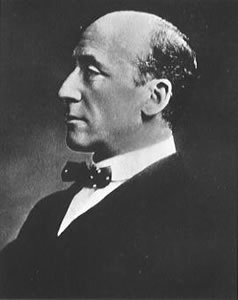
Algernon Blackwood (14 maart 1869 – 10 december 1951)
